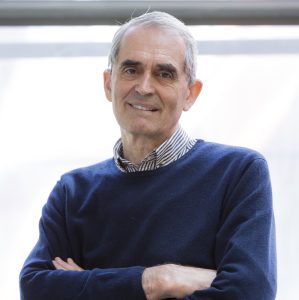Born in Driffield, East Yorkshire, England (1947), I was educated at state schools in Leeds, Bradford and Stoke-on-Trent (1952-65) and studied Sociology at the London School of Economics (LSE) (1965-70). I gained my BA from the University of London (1968) and PhD from University of Hull (1993).
Academic career
I began my working career as a Tutor in Sociology at LSE (1968-70), and became a Lecturer at the University of Durham (1970-72) and then at Hull (1972-95) where I was in turn Senior Lecturer, Reader and finally Professor of Political and International Sociology. I moved to the University of Sussex as Professor of International Relations and Politics (1995-2008) and was subsequently Research Professor (2008-12) before becoming Emeritus Professor.
I was Head of the Department of Sociology and Director of the Centre for Security Studies at Hull (both 1989-92) and Chair of IR and Politics at Sussex (1996-9). I was a Leverhulme Research Fellow (2000) and ESRC Research Fellow (2004-5).
Since 2010, I have been Professorial Fellow in International Relations and Human Rights, at the University of Roehampton, London, and Research Professor at the Institut Barcelona d’Estudis Internacionals (IBEI), both in a part-time capacity.
Political career
I joined the Labour Party when I was at school (1962) and was on the editorial board of the Catholic-left journal Slant (1965-67). At LSE, I was involved in the student and anti-Vietnam war movements and joined the International Socialism Group (1966). I rejoined the Labour Party (1979) and was its Labour parliamentary candidate in the safe Conservative seat of Beverley, East Yorkshire (1987). However I am no longer a member of a national party.
I was also involved in European Nuclear Disarmament (1981-85) and was chair of the Humberside region of the Campaign for Nuclear Disarmament (1981-84).
I am currently involved in local politics and was elected as the Independent East Devon Alliance councillor for Seaton and Colyton on Devon County Council (2017).


25 February 20111
Dear Mr. Shaw
The recent article “Conflict Erupts Among Top Genocide Scholars” in The Forward reports that you were called delusional for describing Israel as having practiced “genocide” against the Palestinians which resulted in a controversy among scholars.
However, I strongly agree with that description. It doesn’t take a learned academician to see over one million Arabs living as citizens of Israel some serving in the Knesset, in the armed forces and thriving throughout Israeli society. If Israelis practiced “genocide” or “ethnic cleansing” in 1948, they surely did a poor job.
On the other hand, the Jewish community of Jerusalem was summarily driven from their homes with no criticism from the outside world. I’ll be awaiting your comments on that.
Furthermore, If academicians like you and others want to spend their time wisely reviewing cases of genocide or ethnic cleansing, I would suggest you look no further than the surrounding Arab world where the Jewish communities were destroyed and their members driven away to the tune of close to a million people.
No doubt individual cases of hatred and persecution occurred during and after the 1948 war in what is now Israel but these were isolated. As the present Arab population numbers attests, neither planned or orchestrated genocide or ethnic cleansing occurred.
Also, if you have time in your schedule, I would really like to see you chair a conference on the Turkish genocide against the Armenians and a great location would be Istanbul. But I guess you might be a little less willing to take on the Turks than the easier chance to slam Israel.
George Reiss
Paradise Valley, AZ
My compliments on publishing the above comment. Clearly, you allow people who disagree with you to have their say. I agree with much of what Mr. Reiss has written. The recent practice of “generalizing” The Holocaust – in order to justify the need for an International Criminal Court and humanitarian intervention to prevent mass killings – threatens to render The Holocaust into an abstraction. I get nervous when I see politicians trying to write history because it invariably leads to the politicization of what should be a purely academic search for the truth. Frankly, I can’t imagine how anyone who has conducted serious research into this area could conclude that The Holocaust was not quantitatively and qualitatively a unique historical occurrence (so far). Ultimately, petty arguments over whose genocide is bigger belittles the suffering of all victims of mass violence.